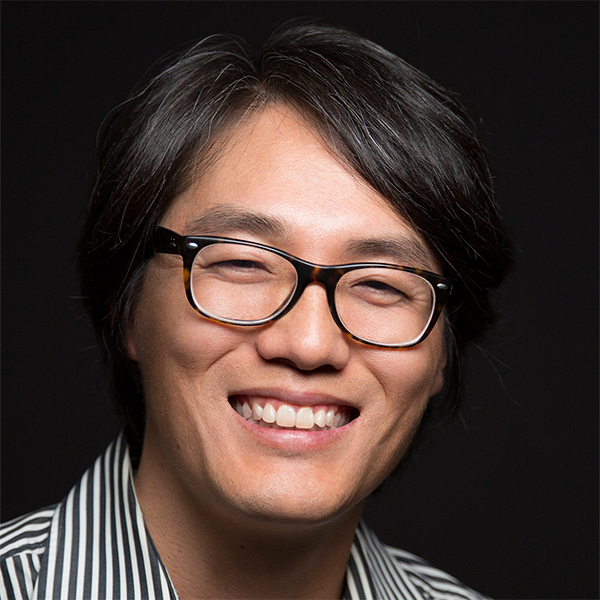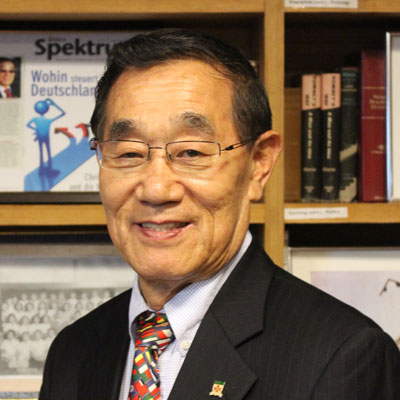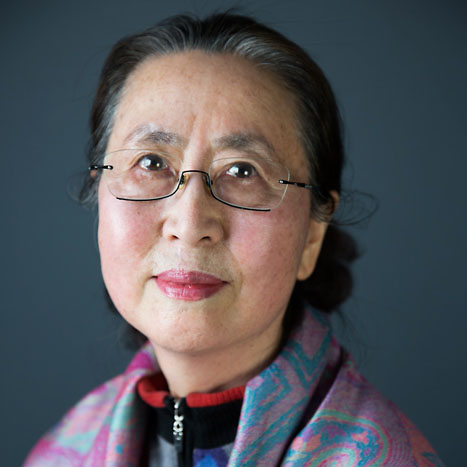Tag: academic

Esther Kang
Esther Kang is a researcher, educator, and Professor of Design Studies at the University of Wisconsin. As both a child and adult she moved often, experiencing life across a diverse range of cities spanning from Los Angeles and San Francisco, to Dallas and New York, and abroad in Perth, Australia, and Durbin, South Africa. Having lived in Los Angeles the longest and throughout her formative years, she considers the city to be her hometown; her family moved to L.A. in January of 1992, just months before the L.A. Uprising in April. Kang recounts how Saigu was a catalyst in her family’s discussions about race, the idea of which stuck with her as the family moved around the country: while attending school in Dallas, she was one of only two Asians students in the entire student body. As a researcher and educator today, Kang’s work centers on the political, cultural and social implications of Design, incorporating the recognition that design is more than just a means of communication, and that in many ways, the process of design itself is the product as well. She continues to ask what an equitable design process looks like, and what ethical design ethos is, questions she compels us to think about with critical and sensitive understandings of their consequences.

Joseph Jeon
Joseph Jeon was born in Seoul, South Korea in 1971. Two years later, his family immigrated to the United States when his father entered a medical residency program in Barberton, Ohio. Currently a professor of English at the University of California, Irvine, he is also the director of the UCI Center for Critical Korean Studies, an institution aiming to centralize Korean Studies at the university and support students and faculty in their work. His experience of raising a daughter has helped him discover how racial dynamics in American communities have shifted over the past few decades and provided him with a positive outlook on the future. His process of learning how the different places in a person’s life shape the culture in which they grow up has, in turn, helped strengthen his commitment to contribute to his community. All content has been recorded in advance prior to the US outbreak of COVID-19.

We Regret To Inform You
The first email was innocuous enough, considering that faculty on the community college at which I was an assistant professor had been following the news about the first confirmed case in New York. His daughter had been attending school not too far from our campus, and in the days following that discovery, we would ask, “Do you think anyone on our campus…?” The sentence would often go unfinished.

Kwan Chung
Kwan Ho Chung was born in South Korea in 1937, during the year the Second Sino-Japanese War began. Growing up, he heard stories from his mother about his father’s college education in the United States at the University of Pennsylvania. He made his way to America to retrace his father’s journey, visiting the University of Pennsylvania campus in person and learning about his father’s educational history there. Mr. Chung would spend years piecing together his father’s story in America and publish a biography titled “Father’s Footsteps.” Eventually, Mr. Chung would also come to live in the United States, in search of more opportunities for his sons and a new life in a new country. His father’s story motivated Mr. Chung to seek opportunity and fulfill his own ambitions, continuing a remarkable legacy of determination and perseverance.

L. Song Richardson
L. Song Richardson was born in El Paso, Texas to a Korean American mother and African American father who was a Lieutenant Colonel in the U.S. Army. Richardson grew up with strong influences of Korean culture from her mother who always stressed the importance of education which would later contribute to Richardson’s passion for teaching and research. In this Legacy Project, Richardson reflects back on the challenges of growing up mixed race and how her parents fell in love. L. Song Richardson is the current Dean and Chancellor’s Professor of Law at the University of California, Irvine School of Law with joint appointments in the Department of Criminology, Law and Society and in the Department of Asian American Studies.

Anne Joh
Dr. Wonhee Anne Joh was born in South Korea and moved to Chicago in the late 1970s where she grew up with first-generation immigrant parents who ran a dry cleaners store. Dr. Joh recalls seeing the tensions of class differences within the Korean American community and how she never identified with the model minority stereotype. Dr. Wonhee Anne Joh is currently a professor of Theology and Culture at Garrett-Evangelical Theological Seminary in Evanston, Illinois. Much of her teaching revolves around the Korean concept of “jeong” as a different type of love separate from the Western notions of love.

Yuri Doolan
Dr. Yuri Doolan was born in an Air Force base to an American father and Korean mother who met in Korea during the 1980s.

Bonnie Oh
Bonnie Bongwan Cho-Oh was raised believing in equal education for both men and women.

Ji-Yeon Yuh
Ji-Yeon Yuh came to America at age 6 with her mother joining her father who was finishing his doctorate in Chicago.

Soong-Chan Rah
Dr. Soong-Chan Rah grew up in the inner-city of Baltimore, Maryland, with three siblings and a single mother.

Jin Young Choi
Jin Young was born in 1937 in Manchuria which was also under Japanese occupation at the time.

Mickie Choi
With a dream to become Madame Curie, Mickie Choi immigrated to the U.S. in the early 70s to pursue her PhD.

Yoon Soo Park
Dr. Yoon Soo Park, recognized internationally for his research in science and technology, recalls the less public memories of his life during the Japanese occupation and the Korean War.

Yusun Chang
When Dr. Yusun Chang first considered studying abroad, he was not sure if it would be feasible due to financial difficulties.

Han Shik Park – Part 2
As a professor with over forty years teaching political science at the University of Georgia, Han Shik Park shares his thoughts on North Korea,

Han Shik Park – Part 1
Han Shik Park is no stranger to war. Born near what is now Harbin amidst Chinese civil unrest, Park eventually moved to South Korea after the surrender of the Japanese.

Dr. James ChinKyung Kim
Dr. James ChinKyung Kim is no ordinary man, containing the spunk and spirit of a teenage boy.

Kang P. Lee
Since junior high school, Kang Lee’s aspiration was to become one of the greatest scientists Korea has produced. His father, who was the chairman of the biology department at Seoul National University, was kidnapped by the North Koreans during the Korean War. His mother was left to raise 6 children on her own. Kang Lee managed to find scholarships which allowed him to attend his junior high school and high school, and eventually worked his way through Seoul National University as a private tutor. He came to the USA to attend MIT, where he received his PhD. In 1984 he founded Aspen Systems, where he is still the CEO today.
This is an amazing story of struggle and resilience in the face of seemingly insurmountable challenges. Despite a lifetime of struggles and successes, Kang Lee remains an incredibly optimistic and humble person.

Divided Families: Profile of Filmmaker/Physician Jason Ahn
“Divided Families,” the documentary that Ahn co-directed and co-produced, tells the stories of Korean American immigrants who have been separated from family members in North Korea for more than fifty years as a result of the Korean War, which divided the country into north and south.

Dr. Haeng Soon Park
Dr. Haeng Soon Park, a professor of biochemistry, retired from a university in Korea, and then went on to teach in Nepal.

Profile of Dr. Paul Oh
Robots may once have been reserved for the world of science fiction, but they exist among us now and, more quickly than we realize, are becoming a more prevalent and vital part of our society. Today, around the globe, there are robots that dismantle bombs, aid surgeons and even fight wars.

My Korean American Story: Kyung Won (Tim) Park
In Genesis of the Bible, there is a story of Abraham being tested by the Lord to offer his only son Isaac as a sacrifice on Mount Moriah. When Abraham was about to kill his son, he is stopped by the Lord